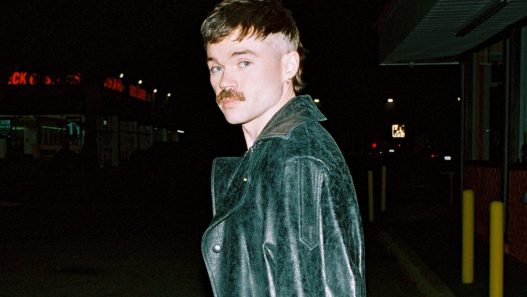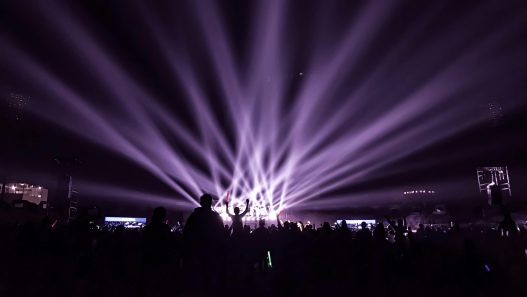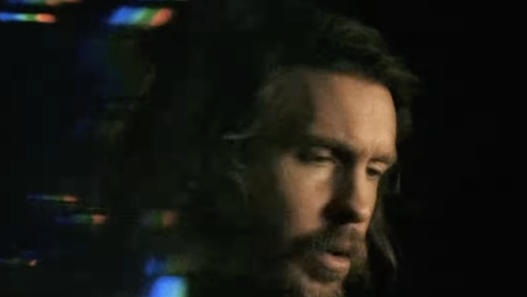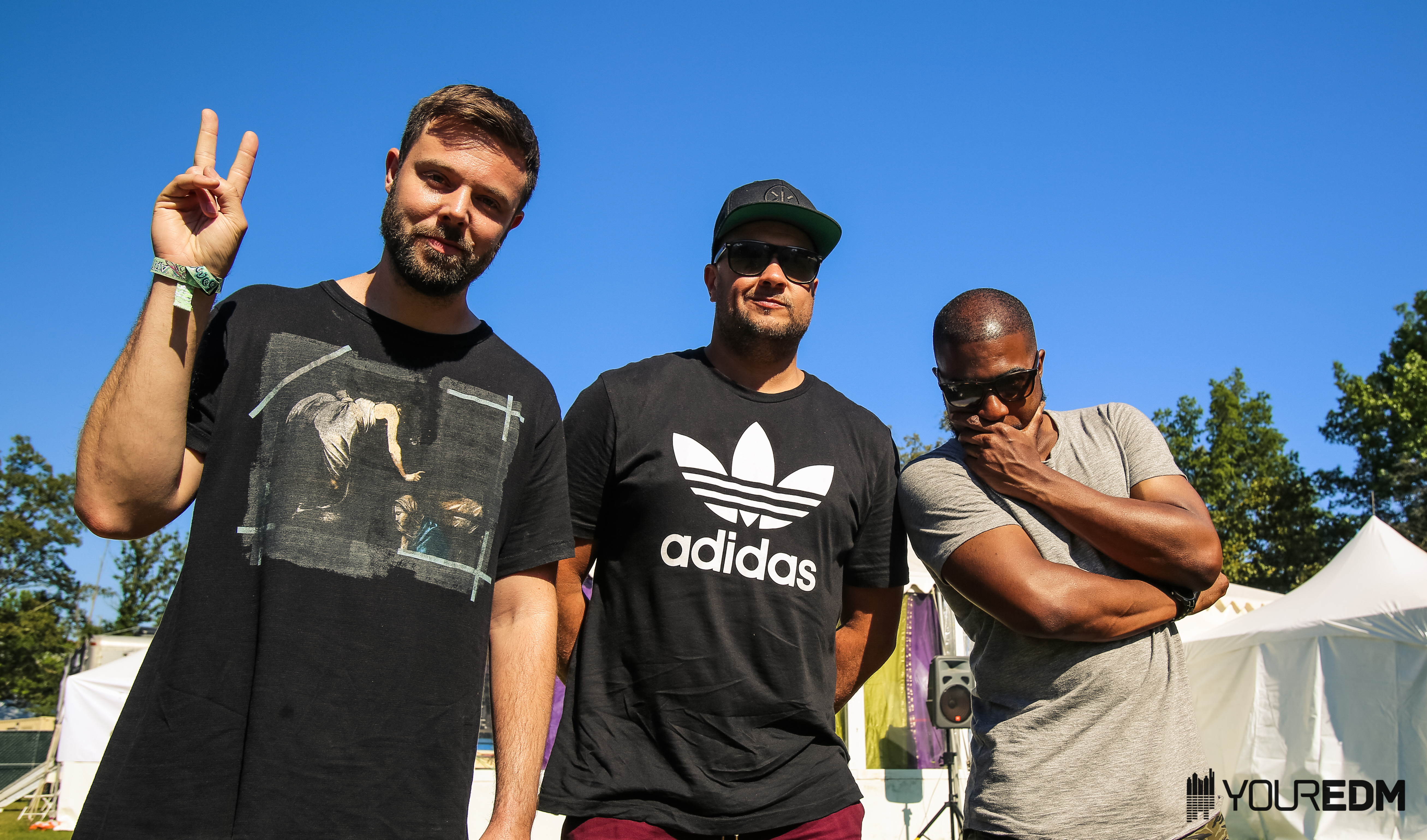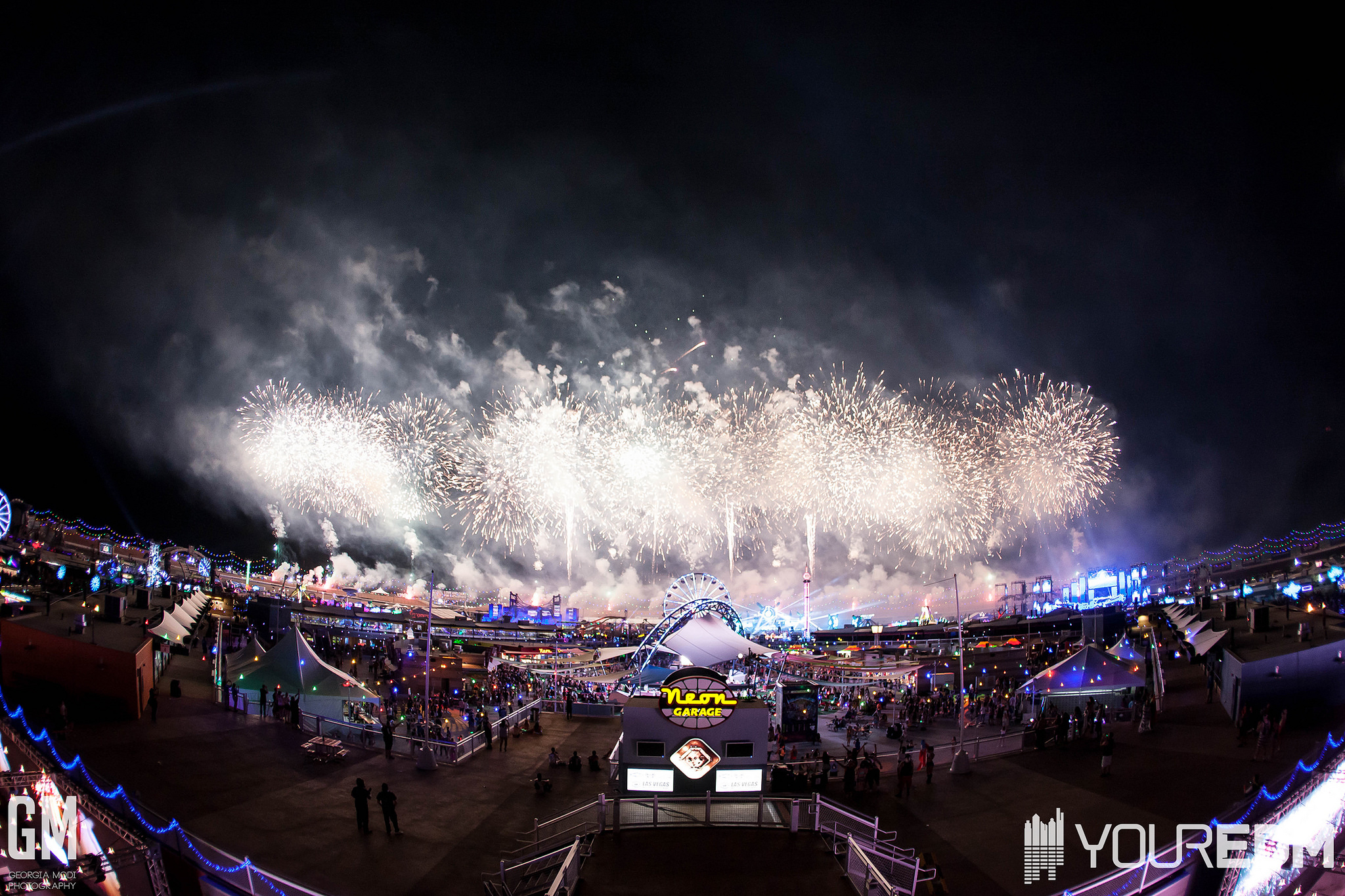Over the past couple of years, one of the biggest and fastest rising names in the dance music scene has been Oliver Heldens. Three years ago, the bearded Dutchman released his breakthrough single “Gecko” on Tiësto’s Musical Freedom label and single-handedly ushered the future house genre into the mainstream. Since then, he’s shed any genre-shackling labels to become one of the biggest producer/DJs on the planet; his disco and house influences are instantly recognizable. Your EDM got to sit down with Oliver at EDC Las Vegas to discuss the future of house music, Oliver’s journey, and his impressions of American rave culture.
What’s the journey been like for you the last few years? You came out with “Gecko” a little while back and ever since then it’s been up and onward.
“Yeah it’s been crazy, so basically I was making music since I was 12, and then about 15-16 I stepped it up, in my head and then I started to get really dedicated. I mean, I was 16, my musical taste was still in its development. So when I was 16 I was making so many different kinds of music and then in the end of 2012, I got really inspired by the UK deep house scene, like Julio Bashmore, Disclosure, Shadow Child. And it also like, took me back to my roots kind of, like 2006-2009 club sounds, and then I was like oh, I love this UK deep house and it was just like combining my influences all spontaneously, like “Gecko” and “Koala.” And that blew up, like big time, and now we’re here like three years later and I’m kind of a superstar DJ, which is crazy.
But, actually, I feel like I’m just getting started. I actually have more inspiration now than I had when I made “Gecko” and “Koala” and other stuff. First off, as Oliver Heldens, I’m working on some really vocal records which are really kind of disco influenced. Like really disco and funk influence, but then I’m also making a lot of club music, and some of it is really, really deep, like techno influenced. And some of it is more crazy, more drum & bass influenced…I have so many ideas at the moment and I’m really excited for everything to be released and to finish it. Since last year I’ve been to L.A. and Stockholm to work with songwriters. It’s a whole new world, it’s so much fun to work with songwriters like lyrics and work with different people.”
Now that you’ve become a superstar DJ and you’re so well known, how do you find the time to balance not only writing all the music, Oliver Heldens stuff and HI-LO, but do Heldeep records, the podcast, traveling, the whole package that comes with it?
“So, last year I did 200 shows, that’s a lot, and all the shows are all around the world, and every week I do the Heldeep radio show. But, actually, nowadays it’s easier because I get all the good demos from all the good labels and all the artists send me their tracks. But two years ago it was a pain in the ass, because I was really a perfectionist, and it’s every week. So every week, 17 or 18 new tracks which have to be fresh and good and there’s so much okay music being released. So, I found myself sometimes on tour, after my show, being in my hotel room until the sun comes up to work on my radio show. Because every week there’s a deadline, which I’ve missed so many times (laughing).
But also with Heldeep Records I’m in a really luxurious position. I’m kind of in a luxurious position since “Gecko” came out, it’s kind of a game changer. So only with “Gecko” people saw me as this pioneer of a whole new house wave, which is really crazy. And of course I’ve made a lot of new tracks, but now I’m like one of the pioneers of house music which is kind of crazy. But that means all the people that make house music they send me their music for my label, so I get a lot of really good demos from a lot of different really cool producers. But also from people who were my idols years ago: Chocolate Puma, Vato Gonzalez, it’s really crazy.
Of course, people say the EDM bubble has burst. Basically, how I translate it is this one wave of like more big room sounds has reached its peak, but there’s so many other waves and they’re all like blowing up, like house, but also the underground stuff, like techno is growing, future bass is really growing. And it’s really good, especially in America, there are so many people who are getting more educated, it’s awesome. It’s a bright future for dance music.”
Coming from Holland, where dance music is huge, what’s your perspective when you come over here and visit America and see the whole rave culture?
“It’s interesting that here it’s more like a culture, where in my home country, in Europe, it’s just music and people like it. Of course, they go to festivals and raves, but here it’s more like a culture and people feel like they’re part of it, which is a great thing. Also, a big difference I see is people here are really outgoing compared to Europe, and they tend to like really crazy stuff, which is good, they’re open-minded about the music.
But I would say in America, they’re not that educated because dance music hasn’t been big. In Europe, especially in the UK, like so many tracks which are big and housey, they would blow up in the Netherlands and the UK on radio, and there was also like Euro-house tracks which were big in Europe, but not in America. Still, the Americans go really crazy for the music and they love it, but they’re just not educated. But, that’s why it’s so exciting, because there’s still so many people in America who are going to discover so many awesome producers, music, in general new music that they don’t know at the moment even though they’re already into the rave culture, they don’t get 100%, but they’re going to get it. People are going to find the stuff they like the most, I think the future looks really bright for dance music. It’s also evolving so quickly, it’s music you can make on a computer, and it’s also easier to make at the moment, and there are lots of people making it, that’s a good thing.”
What are the challenges you encounter on the road when you’re doing 200 shows a year? Do you ever find a time when you can put music aside for a second and do something for yourself?
“Yeah, I can. For example, I plan in blocks at home, like one or two weeks, but when I’m home for two weeks I’m not like in the studio until late night. For me, I just make music when I feel like it, and for me that’s ideal. When I tour I make a lot of music, because I get inspiration on tour. Basically, when I feel inspired and when I feel like it, I make music and then things happen, I don’t really force myself to make music. So on the road I make a lot of new IDs because sometimes I just feel like it and I make something. Also, for example, there’s a lot of guys who block in studio periods at home, and then they go to the studio every morning from morning until late and try to make stuff. For me, I just make music when I feel like it. And sometimes when I’m not on my laptop I can record voice notes of melodies which I came up with in my head. The one downside of all the touring is that I don’t have time to spend hours on a new plugin, or to dig through all these new sample packs. There’s so much new software, and so many new tools being made, and all these new sample packs coming out, so now I don’t have a lot of time to dig in all this technical stuff. Also, my production setup isn’t even all that complicated, it’s kind of basic I would say. But it’s about the chef and not about the kitchen, right?”
When you were a kid, did you envision that you would be an electronic music producer? Did you always have that passion for music or was it something that came a little bit later on in your life?
“I would say, my first passion wasn’t music, it was more creating stuff. For example, when I was really small I wanted to be an inventor, or designer, or an architect. My father was really into music and he would play it, a lot of different stuff, he was really into techno and drum & bass. I also started playing keyboard when I was 11, but that didn’t really excite me very much. But the same period I got really into dance music, and then when I was 12, I went to high school and they threw really big school parties. And I saw it all live, and I was like whoa, I can make music at home and DJs can play it and people dance to it? So then I swapped my keyboard for FL Studio and started fucking around with it. So I’m really passionate about creating new stuff, and people ask me about my goals, like oh, do you want to be number one on DJ mag, blah blah? But for me, my goal is just to make music which makes me excited and that’s a big challenge, and that challenge is always there. Even if you make something new, then after, you want to make more new music. So my goal is just to make music that excites me, that makes me happy. It’s also really fun as a touring DJ if you can make music and then play it out live and see what it does.”
Any words or messages for the fans?
“My fans don’t have to worry that they won’t get a lot of new music or good music. I feel like I’m just getting started, as long as I have so many different inspirations and really cool people I’m working with, so they can expect really good and fresh music in the future. Also, live, as a DJ, I feel like in the last few years I’ve really developed. I played 200 shows last year and I’ve also played as HI-LO, and that really has been amazing, the whole HI-LO thing, it’s just a different experience, as well, so I want to say, go see it live, it’s a really different experience.”



